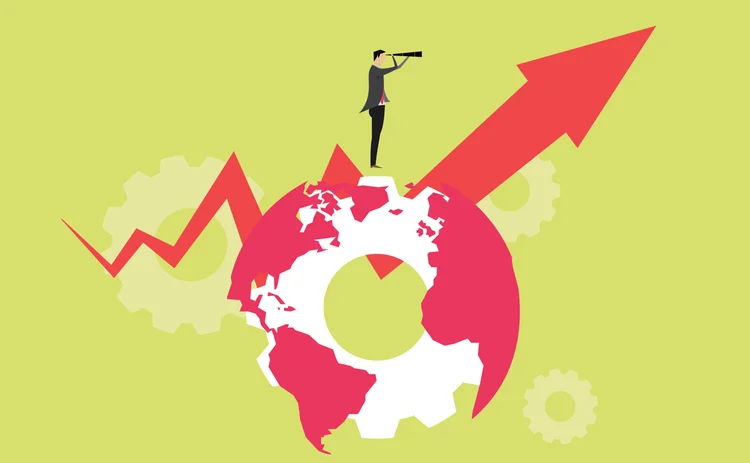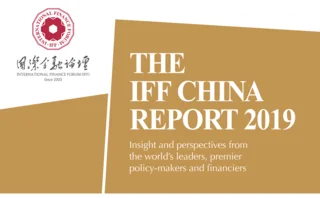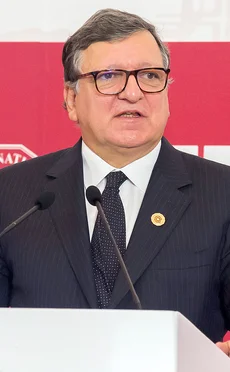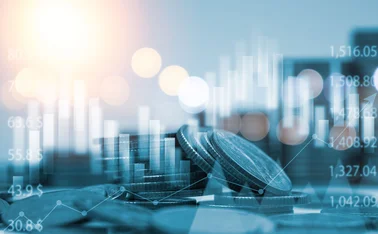
New era, new order, new future


We are living in a very particular and distinct period: this is certainly not the first era of globalisation the world has known, but it is unprecedented because of its scope, intensity and speed. China’s rapid economic rise is one of the clearest demonstrations of this. Comparing the events of today with those of previous eras of globalisation – when the world seemed to become more connected, such as during the Industrial Revolution – we see that the intensity and speed of globalisation is much greater than previously.
We are still experiencing some of the effects of the 2007–08 financial crisis, which was triggered, among other factors, by the collapse of Lehman Brothers. The crisis had one extremely significant impact in Europe: the financial and sovereign debt crisis. At that time, there was a clear need to create a new institutional infrastructure to deal with this global crisis, using the Group of 20.

Meetings of the G20 had already been taking place between finance ministers since 1999, but not at the level of heads of state or government. Myself, then president of the European Commission, and the then president of France, Nicolas Sarkozy, asked US president George Bush to organise the first G20 summit of heads of state and government in Washington, DC. Since then, the G20 summit has taken place annually, and has established itself as the premier global economic forum. The Group of Eight was no longer able to provide a co-ordinated global response to the challenges being faced: other major economies – China, for example – were not represented. Since then, each year, efforts have been made for global, co-ordinated action through the G20 summits.
I had the privilege of participating in all of the G20 summits until I left the European Commission in 2014. They have performed a very important role: attempting to avert a return to full protectionism, as occurred in the 1930s. There was a growing intensity in the movement towards protectionism during the financial crisis; but we have not seen an immediate return to full, hard protectionism.
To a large extent, that has been a result of co-ordinated action from G20 leaders. Efforts were also made to ensure greater financial stability, such as the establishment of the Financial Stability Board in 2009. Although it was not perfect, a design was certainly initiated, a kind of global framework for sustainable growth.
A golden age of co-operation
It was a period of true co-operation and attempts at co-ordination – the first time I had seen heads of state and government from all over the world not formally reading prepared speeches, but engaging in free discussion: What can we do to avoid making this financial crisis worse? What can we do to sustain the possibilities of growth? In Europe, it struck us as a very acute crisis – with doubts about the future of the euro – and the summits felt like the appropriate response. Europe and the European Union felt that China was supporting all of the efforts for stabilisation in the EU and eurozone.
At that time, we had many important conversations with the Chinese authorities at the highest level, including the People’s Bank of China. We believed in the support of China, and in the efforts China could make in sustaining the global economy.
Is the same spirit alive in the G20 today? I’m afraid not. Not only in Europe but in many of the parts of the world, populism has returned. Sometimes it is called ‘nativism’ – the granting of primacy to native populations – forgetting we are all globally linked. We are seeing more nationalism, protectionism and greater tensions. We need to respond to it with ideas, vision and a new infrastructure. The idea is based on multilateral governance, and we need to remain firm in defending a multilateral approach, rejecting unilateralism and even bilateralism.
The move towards unilateralism or bilateralism is not a recent phenomenon: the failure of the Doha World Trade Organization (WTO) talks saw the international community refuse a global trade agreement as some members were not ready. And now the temptation is not only to make bilateral agreements, but sometimes to even go against those bilateral trade agreements.
It is necessary to sustain a multilateral order based on the multilateral approach, which means a multilateral order based on commonly accepted, respected and enforced rules. I am concerned by the current situation of the WTO as it lacks the necessary support for its Appellate Body, which attempts to solve conflicts between its members.
We need to reinforce this global governance – not only at an international but at a national level – because these issues are linked. It’s an illusion to think we can solve all the problems of global governance without addressing matters of internal governance – for instance, governance based on the rule of law – so the blame for the failure of global fair competition can be laid in as many areas as possible.
Competition is of course unavoidable; it will always exist in the international community. The question is whether this competition will take place in the context of a rules-based system, with predictability and stability. Or are we going to watch competition in a global context of confrontation?
We are no longer in a situation where we can say ‘our’ countries and ‘other’ countries, that ‘your’ part, ‘your’ side of the boat is sinking. No, we are in this together
Those who believe in the values of openness should work towards a stable rules-based system where we can make predictable decisions and work within the framework of stability. First, it is important to support the UN, the International Monetary Fund, the WTO and other multilateral institutions, and to support all mechanisms and institutions working towards this multilateral approach.
Second, we should work towards increased connectivity, building the necessary infrastructures, not only in transport and in digital matters, but in other areas that bring the world together. And I believe the trend will be in that direction.
But now we are in a very particular moment of international development, because we are in a situation where the old order no longer works, but there is not yet a new order that delivers or even offers an alternative. We are in the middle of this transition and, by definition, transitions generate anxiety and doubts, and create uncertainty.
Uncertainty today is, unfortunately, the rule rather than the exception when you look at the global order. Probably the greatest risk today to global growth is a lack of predictable rules and a stable system. This anxiety and uncertainty is already fuelling scepticism from the business community and investors, and it can easily spread – a problem for sustainable growth.
In the end, we must decide whether or not we want to live in an open world in a rules-based system. It’s a political and even a broader cultural question – are we going for openness or the opposite of openness? I share the EU’s desire for openness.
Enter China
China has a very important role to play here. Of course, China must decide its own course of action. Having said that, last year was the 40th anniversary of China’s policy of ‘opening-up’ and reform. My opinion is that China’s structural growth prospects lie in its commitment to pursue market-based reform. This commitment drives its long-term growth trajectory, which is very important not only for China, but for the global economy. So, from a European perspective, I would encourage China to continue the movement of opening-up and reform, including for foreign companies – including those in the financial sector. I believe this process can make an important contribution to creating and reinforcing the level playing field we need for development and progress in terms of trade and a global order based on certainty.
So we are now watching this global struggle between flow and friction. There is flow on one side, the flow of trade in goods and services, the flow of international travel, of communications, human contacts, cultural and scientific contacts, and so on; and on the other side, there is friction. But there is also resistance because there is movement, and I truly believe the stronger impetus in the future will be for a globalised, more interconnected world.
The world faces so many important problems, from climate change to financial instability, trade frictions to international terrorism and pandemics. So many problems are global and require solutions and mechanisms that go beyond national borders. We are no longer in a situation where we can say ‘our’ countries and ‘other’ countries, that ‘your’ part, ‘your’ side of the boat is sinking. No, we are in this together.
That’s why we need a global approach that creates the necessary stability for trade, investment and sustainable growth – not forgetting the least developed countries that need the support of the more advanced, major economies to sustain their own development. It is to be hoped that through this can come not only a world of peace, but a world based on the principles of justice.
Only users who have a paid subscription or are part of a corporate subscription are able to print or copy content.
To access these options, along with all other subscription benefits, please contact info@centralbanking.com or view our subscription options here: subscriptions.centralbanking.com/subscribe
You are currently unable to print this content. Please contact info@centralbanking.com to find out more.
You are currently unable to copy this content. Please contact info@centralbanking.com to find out more.
Copyright Infopro Digital Limited. All rights reserved.
As outlined in our terms and conditions, https://www.infopro-digital.com/terms-and-conditions/subscriptions/ (point 2.4), printing is limited to a single copy.
If you would like to purchase additional rights please email info@centralbanking.com test test test
Copyright Infopro Digital Limited. All rights reserved.
You may share this content using our article tools. As outlined in our terms and conditions, https://www.infopro-digital.com/terms-and-conditions/subscriptions/ (clause 2.4), an Authorised User may only make one copy of the materials for their own personal use. You must also comply with the restrictions in clause 2.5.
If you would like to purchase additional rights please email info@centralbanking.com test test test







